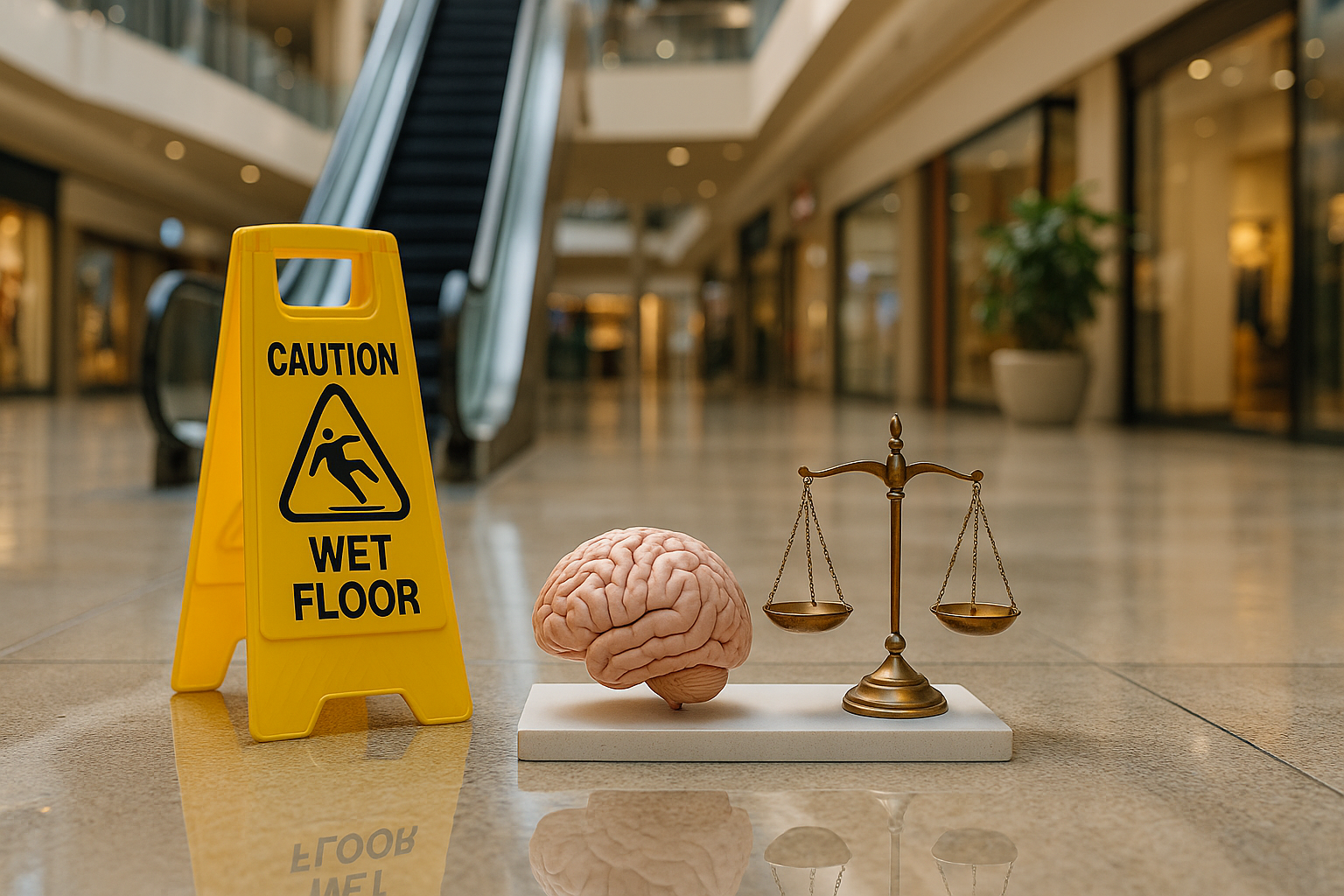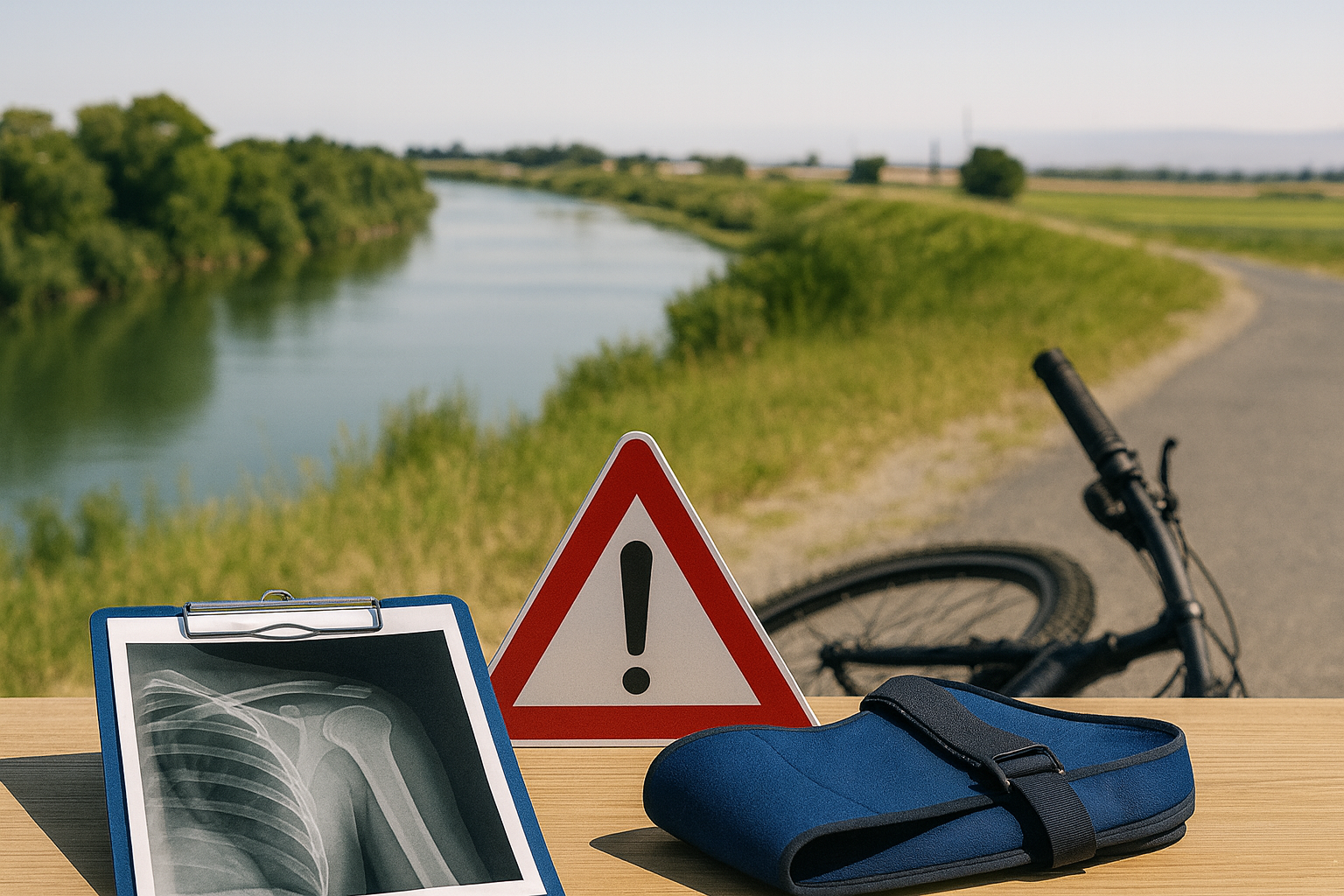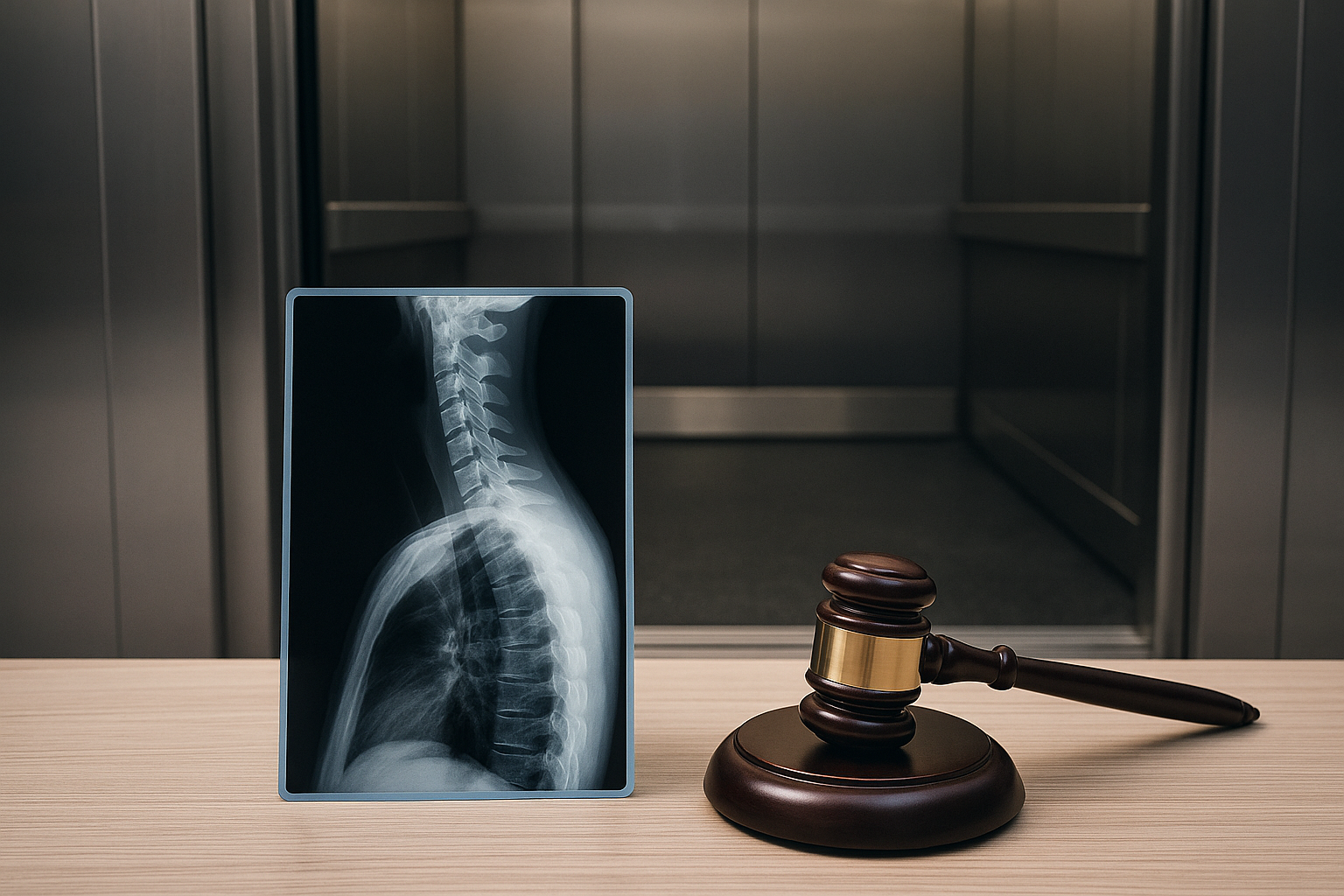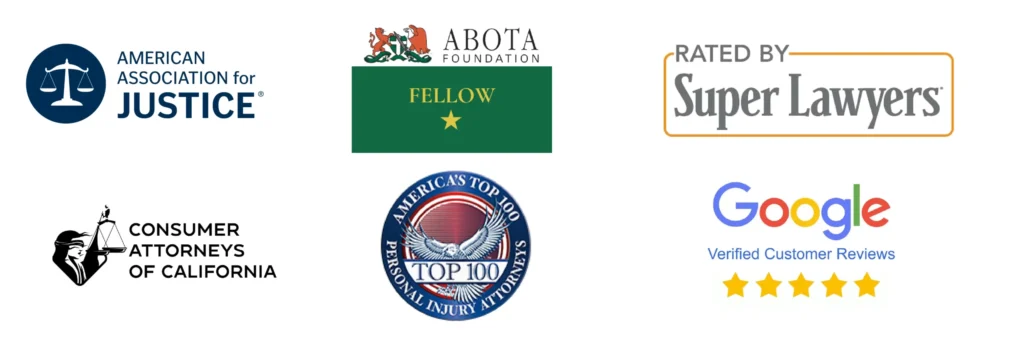A traumatic brain injury from a slip and fall at a Los Angeles mall can change a person’s life in an instant. The chaotic aftermath of a head injury on mall property can involve hospital visits, missed work, and rising medical bills. When someone else’s negligence contributes to your accident, a claim for compensation helps protect your future.
What is a traumatic brain injury after a mall slip and fall?
A traumatic brain injury happens when a blow or rapid jolt disrupts brain function. Slip and fall accidents often happen on slick tile floors or uneven walkways in shopping centers. Even a seemingly minor fall can generate enough force to injure the brain. TBIs range from mild concussions to life altering brain damage requiring surgery or long term care.
When brain trauma happens inside a crowded mall, victims may feel confused or disoriented. The initial symptoms may seem small, but medical evaluation is critical. A mall’s failure to keep the premises free from hazards can create liability when a visitor suffers a head injury.
Why do slip and falls happen in Los Angeles malls?
Slip and falls often trace back to poor maintenance and unsafe conditions on commercial property. Los Angeles malls see thousands of shoppers daily which increases the chance of mistakes being made by property owners and management teams. Small oversights can lead to serious injuries. Common causes of slip and falls include:
- Wet floors from spills or mopping with no warning sign
- Loose or cracked tiles that catch a foot unexpectedly
- Poor lighting that hides hazards from shoppers
- Cluttered aisles and merchandise blocking walkways
- Escalator or stair defects that create trip risks
Mall owners must actively check for dangers and fix them quickly. If they ignore known hazards or delay repairs, they may be responsible when someone is injured.
Symptoms that indicate a traumatic brain injury
Not all brain injuries are visible. Symptoms reveal the seriousness of the injury and guide necessary treatment. Some effects appear immediately. Others grow worse over hours or days. Victims should pay attention to their physical and cognitive changes. Signs of a possible TBI include:
- Severe or worsening headaches
- Dizziness and balance problems
- Memory loss or confusion
- Sensitivity to light or noise
- Nausea or vomiting
- Blurry vision or ringing ears
- Speech difficulties
- Mood changes or irritability
Doctors may order CT scans or MRIs to confirm the injury. Early diagnosis helps prevent complications that can follow a blow to the head.
Steps to take after a slip and fall at a mall
A fast response protects both your health and your legal claim. After falling and hitting your head in a mall, the following steps can support your case and prevent further harm.
- Seek immediate medical care even if symptoms feel mild
- Report the incident to mall security and request an incident record
- Take photos of the hazard and surrounding area
- Collect witness names and contact details
- Keep receipts and treatment bills for proof of injury related expenses
These actions help ensure that the hazard is documented and that there is clear evidence tying the fall to the injury.
Who may be liable for a fall that causes a brain injury?
Premises liability laws require mall operators to make the property reasonably safe. Liability depends on who failed in their responsibility to prevent the danger. More than one party may share fault if multiple entities control the property.
| Possible Responsible Party | Their Role | When They May Be Liable |
|---|---|---|
| Mall Owners | Property maintenance | Ignored dangers or failed repairs |
| Retail Tenants | Store areas inside the mall | Spills or hazards inside their space |
| Cleaning Contractors | Floor care services | Improper mopping or missing caution signs |
A lawyer investigates contracts and responsibilities to determine who caused your injury.
How negligence affects a TBI claim after a mall slip and fall
Negligence means a party failed to act as a reasonably careful property owner would. When a hazard sits unattended long enough, the owner should have known it existed. Evidence such as cleaning logs and surveillance footage helps show this failure.
Victims must prove that the property owner’s lack of care directly resulted in the slip and fall and brain trauma. If the victim is found partially at fault such as walking while distracted, California’s comparative negligence rule reduces compensation based on their share of responsibility.
What compensation can victims recover in a TBI slip and fall case?
A traumatic brain injury can create immediate and long term consequences. Compensation should reflect the full impact of the accident. Victims may pursue payment for:
- Medical expenses including imaging, therapy, and surgery
- Lost wages and future loss of earning ability if brain function declines
- Pain and suffering that continues long after the fall
- Home assistance or rehabilitation costs
- Reduced enjoyment of life and emotional trauma
Severe TBIs may justify lifelong care costs which require expert evaluation to calculate accurately.
What challenges affect traumatic brain injury claims?
Brain injuries often involve invisible damage. Insurance companies may question the severity of symptoms. They might argue that the victim had a preexisting condition. A claimant’s ability to communicate may also suffer which can complicate testimony about the event.
Strong medical documentation becomes vital. Statements from neurologists, therapists, and family members help illustrate how the injury changed the victim’s daily life. A lawyer can help organize proof that supports the claim.
How long do injured shoppers have to file a claim in California?
California generally gives injured people two years from the date of the slip and fall to file a personal injury lawsuit. Missing this deadline usually ends the right to compensation forever. If the claim involves a public entity such as a government owned facility, deadlines may be even shorter.
A lawyer familiar with mall accident claims can ensure that paperwork and notices are submitted before time runs out.
A long road toward healing and accountability
Brain injuries disrupt everything. When a simple shopping trip turns into a medical emergency, victims deserve support as they recover. The claim process can feel overwhelming without guidance. Knowledge of rights and responsibilities offers a path forward toward financial stability and justice.
Knapp Moss understands the burden that a traumatic brain injury places on individuals and families. Our legal team fights for your best interests during negotiations with commercial property owners and insurers. We build strong claims that show how negligence caused your suffering.
Contact us today for a free case review.
Frequently Asked Questions
Delayed symptoms are common with brain injuries. You should still visit a doctor immediately. A medical record linking your symptoms to the fall strengthens your claim.
Yes. Many Los Angeles malls have cameras. Video can show how the fall happened and how long the hazard existed. Your attorney can request footage quickly.
California uses comparative negligence. You can still recover compensation even if you share some fault. Your recovery is reduced only by your percentage of responsibility.
Property owners and insurers often push back to avoid paying. Evidence of unsafe conditions and poor maintenance helps prove liability. Legal representation protects your rights.
Time varies depending on severity of injuries and dispute over liability. Complex TBI cases often require medical evaluation over months to understand long term effects.




